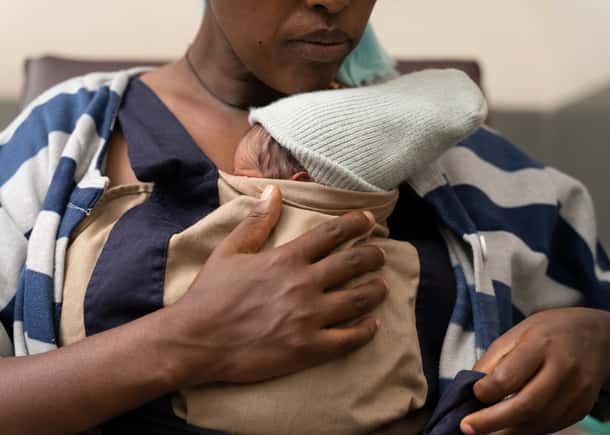Save Story: Baby Tseganesh Senato
Born weighing just 1.3kg, baby Tseganesh Senato required support through small actions, that made a big impact...

Born weighing just 1.3kg, baby Tseganesh Senato required support through small actions, that made a big impact...

Wote Yosef, a 28-year-old mother from the Gorche Woreda region of Ethiopia, had experienced pre-term loss seven times. On her eighth pregnancy, at just 30 weeks pregnant, Wote went into premature labor. Her husband believed that they would lose this baby too. However, their baby girl – later named Tseganesh Sanato - was delivered weighing just 1.3kg. The team at Leku General Hospital sent the baby to the neonatal intensive care unit (NICU) immediately.
The NICU had adopted Kangaroo Mother Care (KMC) – a proven method of preventing neonatal deaths for premature and low weight babies that involves continuous skin-to-skin contact with the mother (or caregiver) – because of the Saving Little Lives program implemented at Hawassa University.
“I kept our baby in the skin-to-skin position for at least four to six hours in the daytime and longer at night with the NG (nasogastric) tube feeding day and night without rest.”
Tseganesh Sanato began gaining weight and growing. When KMC was initiated, she weighed 1.3kg but after 20 days of care she weighed 1.9kg. At this weight, the baby began to breastfeed and was discharged. At her follow up appointment some weeks later, she weighed a healthy 3.5kg.
Not all prematurity stories end as positively as Tsenganesh’s. An estimated 900,000 babies die each year due to complications of preterm labour. It doesn’t have to be this way. WHO suggests three-quarters of all preterm deaths are preventable. Last year the WHO released new guidelines to improve the survival of small and preterm babies as a result of groundbreaking research. The research and subsequent guidelines reinforce the effectiveness not only of KMC, but of KMC directly after birth, known as Immediate Kangaroo Mother Care (iKMC).
Rather than waiting until a baby is stable before initiating KMC, as is current practice, iKMC is immediate continuous skin-to-skin contact and exclusive breastfeeding (or feeding via a nasogastric tube). Research shows that immediate KMC can save more lives.
Interested in learning more about iKMC? Don’t miss Episode 4 of the One Million Lives Podcast, with expert Neonatologist Siren Rettedal from Stavanger University Hospital.